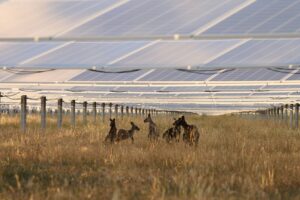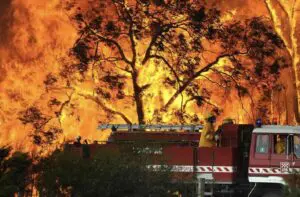The NSW Nationals have further positioned themselves as a party that fails to recognise the threat climate change poses to farmers, passing motions at its state conference that call for the abolition of climate funding and for the protection of coal companies from legal challenges.
The NSW Nationals currently share power in the NSW Parliament, as the junior member of the Liberal-National Coalition that was re-elected in March.
At the 2019 State Conference held in Inverell last weekend, NSW Nationals members passed a motion that called for the NSW government to abolish the “Climate Change Fund,” along with a separate motion that expressed support for nuclear power in Australia.
NSW Labor established the Climate Change Fund in 2007, to collect contributions from network companies that are passed through to consumers via electricity bills.
The fund will deploy more than $1.4 billion in funds collected between 2017 and 2022, including significant investments in regional energy projects, biodiversity projects, and specific measures aimed at improving the sustainability of agricultural practices.
The NSW Nationals also carried a motion that sought to shield companies and coal development projects from similar legal challenges to that of the Rocky Hill mine, which had a decision to block approval upheld on grounds that included its contribution to global warming.
“This Conference call on the NSW Nationals to legislate to protect all industries against “Scope 3 emissions” being used against them,” the motion moved by the Gunnedah branch said.
The NSW government refused to grant planning approval to the Rocky Hill mine, with the mine’s developers challenging the refusal in the NSW Land and Environment Court.
In a landmark decision, Chief Judge of the Court, Brian Preston said that it was the “wrong time” to approve such a project, given the need to reduce greenhouse gas emissions, and to limit growth in fossil fuel usage.
It is understood that the party’s State conference also considered a motion that would have affirmed that the NSW National party recognised that climate change was human-made, but the motion was unsuccessful.
The NSW Nationals control around a third of the Liberal-National Coalition’s seats in the NSW Parliament, with members including party leader and Deputy Premier John Barilaro and parliamentary secretary for energy Benjamin Franklin.
The motions carried by NSW Nationals rank-and-file members put their state parliamentarians in an awkward position, particularly as the NSW Government roles out a significant program of spending under the Climate Change Fund, which serves as the NSW government’s strongest policy driving new investment in energy infrastructure.
When contacted about the motions, Franklin, who has been a strong advocate for renewable energy investment in the NSW Nationals ranks, distanced himself and the NSW government from the party’s motions.
“The outcomes of these two motions reflect neither my personal views nor the views of the government,” Franklin told RenewEconomy.
The motions come at a time when large portions of regional NSW continues to be impacted by drought and Sydney falls back under water restrictions for the first time in almost a decade.
The projected impacts of climate change on NSW have consistently indicated worsening conditions for farmers in NSW, driven by higher temperatures, shifting weather patterns, and high frequency of both intense flooding and drought.
And while the NSW Nationals have struggled to grapple with the issue of climate change and recognising the impacts that it will have on farmers, farmers themselves are acutely aware of the gravity of the situation.
Just this week, the Guardian reported that a meeting convened by the Australian Farm Institute had focused almost exclusively on the impacts of global warming on farming.
“There’s this big issue that says we can’t really admit to climate change because that means we have to change all these other things and that’s really hard, we don’t really want to shut down coal-fired power stations,” the paper reported Boggabilla farmer Pete Mailler as saying.
“The reality is I can’t stand by and let people glibly talk up agriculture if they are not prepared to start tackling the hard issues now. Because if we set the next generation up to walk off into the sunset and say ‘here you go’, it’s a great opportunity and if we don’t start to tackle these problems now we are setting them up to fail.”
And while the farmers name one of their biggest challenges as discussing global warming without scaring people out of food production, another might also be finding political representatives to take their plight seriously.
Increasingly, the Nationals are not filling that role. The party was forced to expel approximately 30 members of its youth wing last year after it was revealed that members with links to neo-Nazi groups had infiltrated the party.








